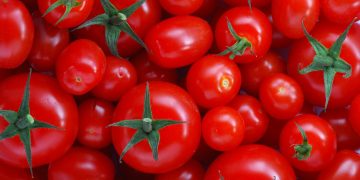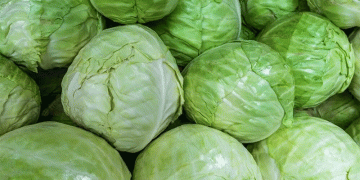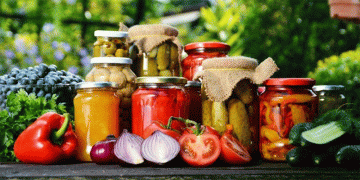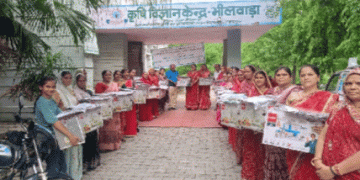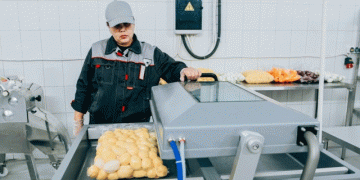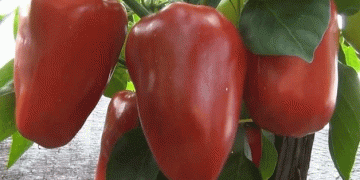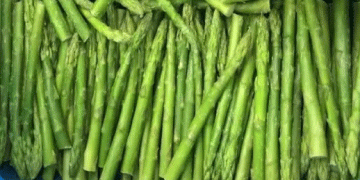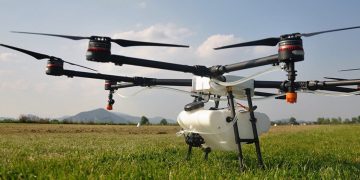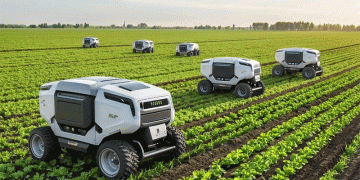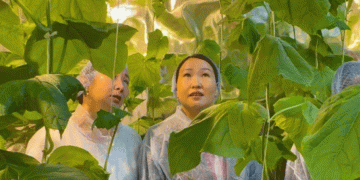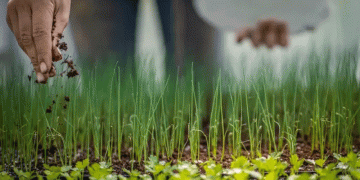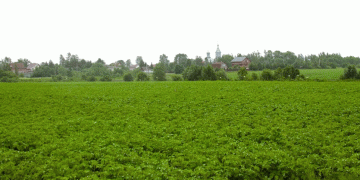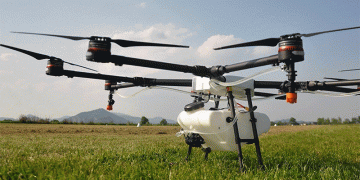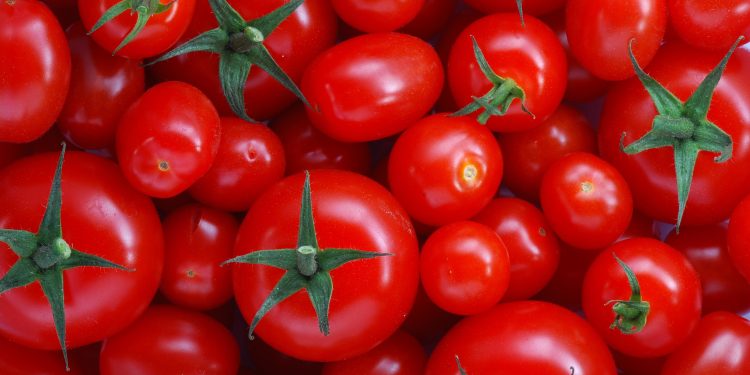#bio-basedproducts #cropprotection #PrimorskyKrai #eco-friendly #sustainableagriculture #soilhealth #Tridem #BIS #GROHUS #reconnaissancetrials #cropyield #diseaseincidence
Primorsky Krai’s unique climate is characterized by a large temperature range and uneven distribution of precipitation throughout the growing season. Phytophthora, a destructive plant disease, can reduce fruit quality by 50% to 100%. Alternaria, another common disease, affects tomato leaf surfaces and can reduce crop yields by 30% or more, regardless of weather conditions. Agricultural production requires constant improvement in crop protection. The primary method of combating diseases is chemical protection with fungicides, some of which have been proven effective over the years of research at the Primorye Vegetable Experimental Station. However, in recent years, there has been a growing demand for “eco-friendliness” in the vegetables supplied to the market, and consumers often choose safety over price and quality. As an alternative to chemical treatments, bio-based products are becoming increasingly popular, reducing pesticide load on soil and plants, and, in some cases, reducing the cost of treatments. The laboratory-analytical department of the Federal Scientific Center of Vegetables has developed new experimental bio-based products based on consortia of living cultures of microorganisms – Tridem (bio-fungicide) and BIS (immunomodulator and biostimulant) – which have proven effective on several vegetable crops in the Moscow region. Therefore, the aim of the study was to conduct reconnaissance trials of these products in another ecological zone – Primorsky Krai – to evaluate their effectiveness, as well as the effect of a different type of product, the bio-organic fertilizer GROHUS, based on biologically active compounds of various origins and mineral supplements.
The use of bio-based crop protection products has several advantages over traditional chemical-based products. First, they are considered eco-friendly, reducing the impact on the environment and reducing the risk of toxicity for humans and animals. Second, they often have fewer restrictions on use, as they do not leave chemical residues on crops or in the soil. Finally, they can improve soil health by promoting beneficial microorganisms, improving nutrient availability, and reducing soil-borne diseases.
The results of the reconnaissance trials of Tridem, BIS, and GROHUS in Primorsky Krai were promising, showing a significant reduction in disease incidence and improved crop quality and yield. These findings suggest that bio-based products can be a viable alternative to traditional chemical-based products in Primorsky Krai, providing benefits for both farmers and consumers.
Tomatoes are a popular crop grown in open fields, but achieving optimal yield and quality can be challenging. Biopreparations, such as Grohus, Tridem, and BIS, are natural alternatives to traditional chemical fertilizers and pesticides that can improve soil fertility and stimulate plant growth. A study conducted at the Primorsky Krai agro-climatic zone in Russia demonstrated that the use of these biopreparations resulted in higher yields and better quality tomatoes, particularly for the Fitilyok variety.
The Fitilyok tomato variety, which is a determinate type with a cylindrical shape, was used in the study. It is a versatile variety that is suitable for open-field cultivation, has a maturity period of 105-120 days, and produces fruits that weigh between 30-60 grams. The Fitilyok tomato is also known for its uniformity and high resistance to cracking, as well as its high content of beta-carotene, making it a valuable product for children’s and dietary nutrition.
The biopreparations used in the study were Grohus, Tridem, and BIS. Grohus is a complex of natural humic acids, macro- and microelements, enzymes, amino acids, and other biologically active substances. Tridem is a preparation based on Trichoderma microfungi strains, which are designed to suppress the development of plant diseases and improve soil fertility. BIS is an experimental biostimulant and immunomodulator based on Pseudomonas and Rhodococcus bacterial strains and Rhodotorula glutinis yeasts.
The study found that the use of biopreparations resulted in a significant increase in tomato yield, quality, and resistance to disease. Specifically, the Fitilyok variety treated with Grohus, Tridem, and BIS showed a 33% increase in yield compared to untreated plants, as well as a 15% increase in fruit weight and a 27% decrease in the number of diseased plants. The Fitilyok tomatoes treated with biopreparations also had a higher content of beta-carotene compared to the control group.
In this study, seeds were manually sown in an unheated plastic greenhouse in mid-April, and seedlings were transplanted to open ground in mid-June. Various treatments were applied manually, including soil and foliar applications of experimental preparations. The study included a control group and four treatment groups, including Grohus, Tridem, BIS, and Acrobat MC. The study evaluated the phytosanitary condition of the plants and the yield structure.
The results of the study showed that the Acrobat MC treatment group had the highest average yield of 27.3 kg/m2, followed by the Grohus group with an average yield of 24.3 kg/m2. The control group had an average yield of 16.4 kg/m2. The Tridem and BIS groups had average yields of 21.8 and 18.2 kg/m2, respectively. The Acrobat MC group also had the lowest index of disease damage to plants, with an average score of 1.6 out of 5.
According to the study, the first signs of Alternaria leaf spot were observed in late June, and by mid-July, 60% of the plants were infected. By the end of July, the disease had spread to 100% of the plants, and the severity of the disease had reached a threshold level. Similarly, Septoria leaf spot and Phytophthora blight were also observed in tomato plants, with 100% prevalence by August and September, respectively.
However, the study also evaluated the use of biopreparations in controlling these diseases. The results showed that the spread of Alternaria was significantly lower in plants treated with biopreparations such as Grohus and MBK Tridem. By the end of July, the prevalence of the disease in these plants was around 50-60%. The biological efficacy of these biopreparations in controlling Alternaria was also found to be higher than the standard chemical treatment.
In conclusion, biopreparations can be an effective alternative to chemical treatments in controlling plant diseases. The latest data suggests that biopreparations such as Grohus and MBK Tridem can significantly reduce the spread and severity of Alternaria in tomato plants. However, more research is needed to evaluate the long-term effectiveness of these biopreparations in controlling plant diseases.
If you are looking for a way to increase your tomato crop yield, you might want to try biological preparations. Recent studies show that the use of Tridem and BIS (BE-9%) preparations can boost the size of your tomato plants and improve their resistance to altrenariosis. Furthermore, their use has been found to stimulate early fruit formation, resulting in an increased early harvest.
According to the research conducted by agricultural scientists, the biological preparations showed a positive effect on the plant’s development, resulting in more extensive tomato pods. The biological efficiency (BE%) of the preparations ranged from 3-9%, with a commercial efficiency (CE%) of 13% compared to the control group.
It is also essential to note that the protective effect of these biological preparations decreases as the infectious background tension rises, reducing their biological efficiency. Nonetheless, in contrast to chemical fungicides, the use of biological preparations did not affect the degree of plant damage caused by a complex of diseases, such as alternariosis, septoriose, and phytophthora.
The use of biological preparations such as Tridem and BIS can positively impact the yield of tomato crops, resulting in an increased early harvest and a significant boost to the size of tomato pods. While the protective effect of these preparations decreases as the infectious background tension increases, they remain a viable alternative to chemical fungicides with minimal impact on plant health.
According to the latest data from a study conducted by researchers (link provided), Tridem treatment showed a significant impact on the overall yield among the biopreparations studied, with a 35% increase in efficiency compared to the control group. However, due to the development of Phytophthora infestations towards the end of the season, the yield of commercial crops in all experimental groups remained similar to the control group.
The study highlights the potential benefits of using biopreparations in agriculture, but also the limitations of these products in certain scenarios. While the overall yield increased, the quality of the crops was not significantly affected due to the lack of immune-modulating effects of the biopreparations on Phytophthora infestations. It’s important for farmers, agronomists, agricultural engineers, farm owners, and scientists to consider these factors when choosing biopreparations for their crops.
According to a study conducted by the All-Russian Research Institute of Biological Plant Protection, biopreparations such as MBK Tridem and MBK BIS have demonstrated promising results in controlling Alternaria in tomato plants of the Fitilek variety. These biopreparations were able to suppress the development of Alternaria below the threshold level of harmfulness, leading to increased yield and early harvest. Furthermore, these biopreparations have been shown to positively influence the growth and development of tomato plants.
However, towards the end of the growing season, the efficacy of biopreparations decreases due to various reasons. For instance, the Fitilek variety has an intensive vegetative mass growth and fruit formation after the second or third cluster, which may not have been treated with biopreparations. Additionally, the immunomodulatory and fungicidal activity of biopreparations may be less effective against other types of plant diseases.
Despite these limitations, the use of biopreparations can reduce the need for chemical fungicides, which have adverse effects on the environment and human health. By applying biopreparations such as MBK Tridem and MBK BIS in the first half of the growing season, the number of chemical fungicide treatments can be reduced. This approach can help mitigate the risk of complex diseases such as septoria and phytophthora towards the end of the season.
In conclusion, the use of biopreparations in tomato cultivation shows promising results in increasing yield and early harvest while reducing the need for chemical fungicides. Further studies are required to evaluate the efficacy of biopreparations in other varieties of tomato plants and to develop protocols for their use as part of integrated crop management practices in Primorsky Krai.
